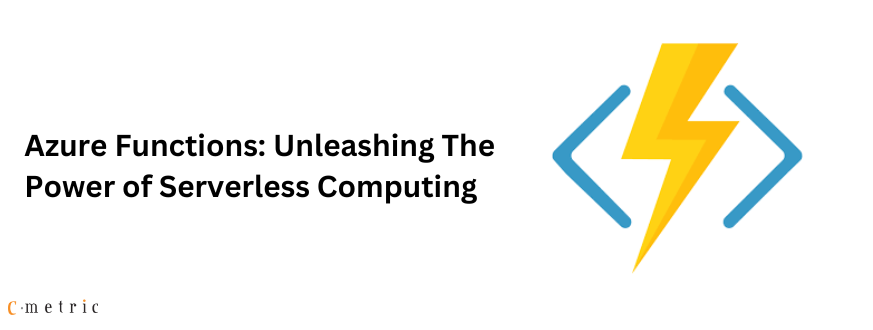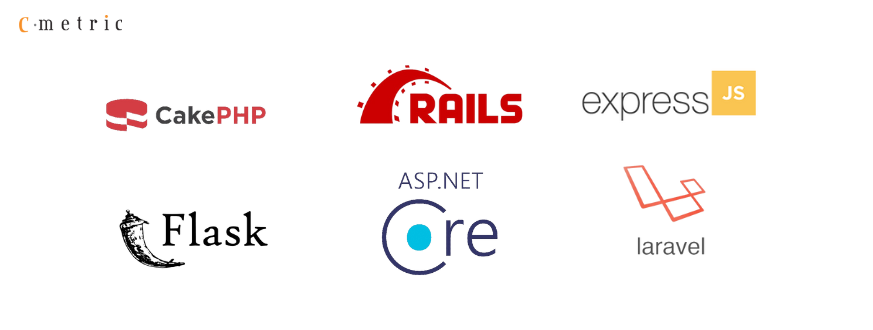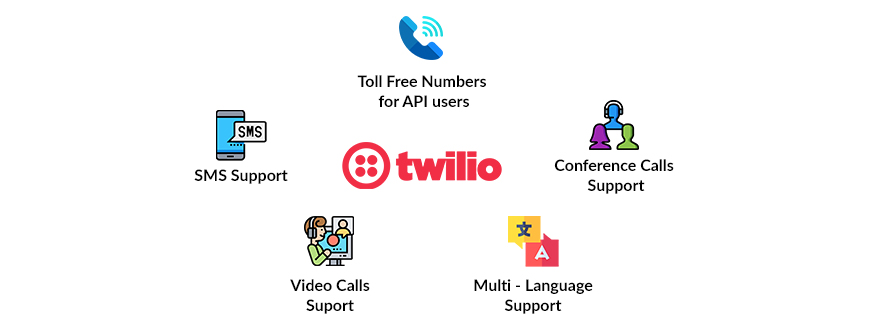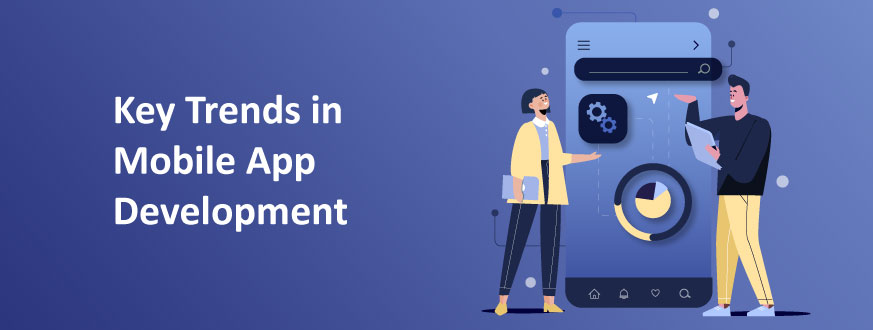Businesses continuously search for tools to analyze data to enhance their decision-making processes and operate more efficiently. As cloud becomes increasingly popular among organizations of all sizes, it is now integrated into their business intelligence (BI) strategies. While BI assists in delivering timely and accurate information, Cloud business intelligence enables access to data from any location.
In this blog, we will delve into the details of cloud business intelligence, how does it work, the benefits of cloud BI, capabilities of BI, and how C-Metric can lend a helping hand to develop one-of-a-kind Cloud BI solution.
Cloud Business Intelligence: Definition
The process of connecting to cloud data, putting it into a data model, and then analyzing it to get insights that can assist with decision-making is known as cloud business intelligence. Beyond just locating insights, the most effective cloud-based business intelligence solutions enable users to leverage those insights to trigger automated actions.
It frequently calls for integrating data from several sources, including financial, operational, sales, and customer information, into a single, well-organized cloud platform, such as a cloud data warehouse. This is crucial if you want business users to be able to use data to recognize trends, prevent needless risk, and make future plans in addition to understanding and acting upon customer behaviors.
The current data stack’s cloud business intelligence tools gather, organize, transport, and transform data in a number of ways. These technologies must establish a connection to pre-existing data sources, including databases or spreadsheets, regardless of whether you’re utilizing ELT or ETL. After that, this data is analyzed using a range of techniques, such as statistical models and algorithms. After that, cloud business intelligence can begin analyzing this data to extract meaningful insights. These revelations can then be shared with other users, shown in a data visualization such as a bar chart or histogram, and used to guide decisions that impact business performance.
How Does Business Intelligence Cloud Work?
-
Public Cloud:
Public cloud deployment involves hosting cloud-based services, including Business Intelligence tools, on infrastructure owned and maintained by third-party cloud service providers. It offers scalability, accessibility, and cost-efficiency, as resources are shared among multiple users.
-
Private Cloud:
Private cloud deployment entails hosting cloud services, such as Business Intelligence platforms, on a dedicated infrastructure exclusive to a single organization. This option provides enhanced control over security and customization, making it suitable for businesses with specific regulatory or data privacy requirements.
-
Hybrid Cloud:
Hybrid cloud deployment combines elements of both public and private clouds, allowing businesses to utilize a mix of on-premises, private, and public cloud services. This provides flexibility, enabling organizations to leverage the scalability of the public cloud while maintaining sensitive data in a private cloud for enhanced control and security.
Top Benefits of Cloud Business Intelligence
-
Exceptional Mobility
Using a mobile enterprise approach, cloud business intelligence enables decision-makers to remain in real-time communication with users around the clock, 365 days a year. It has made it easier for BI specialists to collaborate effectively and communicate with clients more effectively. Additionally, it makes it easier for mobile users to view topline reports, respond to urgent notifications, project deliverables, customer service, client contracts, and much more from their mobile devices at any time of day, boosting productivity to a remarkable level.
-
Data Security
Cloud business intelligence secures organizational data by managing tactical data security and ensuring data encryption across all critical stages—whether in use, flight, or rest. Cloud-based business intelligence systems offer a range of data security protocols and techniques, including voice recognition and fingerprint authentication, to protect data from breaches. Cloud business intelligence solutions and service providers don’t just rely on single sign-on security authentication (SSA); they also take extreme care with data security.
-
Quick and Easy Implementation
Since cloud business intelligence solutions are more popular than off-premises ecosystems, you must already be aware that they don’t require extra hardware or software installations, or cluster setups.
As long as you are familiar with all of the options, a number of the built-in features, modules, and governance measures are current and simple to implement. Also, a plethora of arguments support the suitability of cloud computing for your company.
-
Cost-effectiveness
When two technologies are integrated, the best aspects of each are combined under one roof, which benefits both parties and keeps the cost down. Cloud computing is being quickly incorporated into business analytics, saving organizations money on maintenance fees and pricey software and hardware purchases. Better functionality is also guaranteed at a reasonable cost because you just pay for what you use.
-
Increased Scalability
The logic of business intelligence is predicated on data analytics from many sources. This data’s integration with cloud-based business intelligence tools makes it easy to source. It offers the convenience of easily accessing more data and processing resources. Without having to wait for extra hardware or software installation requirements, scaling in and out the number of users may be done seamlessly based on the necessary data handling and analysis.
-
Advanced Data Exchange
Cloud analytics is the pinnacle of cooperative knowledge sharing and cooperative processes. The reason is that it makes the data estate easily accessible to all team members when they are on the go. With the help of the infrastructure, you can integrate data from cloud and on-premises sources, add real-time and web-based insights, and manage everything from a single interface.
-
Simple Interpretation of Data
Today’s most sophisticated cloud-based business intelligence tools provide detailed data stream analytics. Visual analytics, which includes flowcharts, diagrams, charts, decision trees, and sophisticated business intelligence analytics, further enhance these comprehensive analytics. With all these developments, cloud-based business intelligence tools facilitate data driven storytelling by providing quicker and more accurate insights into consumer behavior, sales performance, and marketing initiatives.
-
Easy Usage
Since cloud BI is always in the cloud, managing it doesn’t require an IT specialist. Furthermore, business analysts with less technical expertise can use cloud BI. Because they are so flexible and adaptable, cloud-based business intelligence solutions are usually easier for clients to use.
Additionally, users of cloud BI systems may monitor, analyze, and make sense of their organization’s data with the use of intuitive dashboards and eye-catching visualizations.
Cloud Business Intelligence Capabilities
1. Superior Analytical Ability
The capacity to carry out and support predictive analytics and data mining for efficient root cause analysis and precise forecasts.
2. Collaborative Capabilities
Real-time analytics and report sharing ought to remain a simple feature of your cloud-based business intelligence technologies. It will be easier for the company to proceed towards a common objective if departments share pertinent insights.
3. Data Integration
Data integration is a crucial skill that involves combining data from multiple sources, including databases, data warehouses, and cloud-based applications. To enable data blending and ass ist analysis, the software should be able to extract, convert, and load (ETL) data from many sources. Microsoft Power BI, for instance, features end-to-end analytics architecture and specially designed tools. Your whole BI journey is supported, from data extraction and modeling to obtaining insightful conclusions.
4. Cost Efficiency
Cloud BI’s cost-efficiency pertains to the optimization of resources and infrastructure. With a pay-as-you-go model, businesses only pay for the resources they consume. This eliminates the need for significant upfront investments, making BI solutions more accessible to organizations of various sizes. Cost efficiency also extends to maintenance, as cloud providers handle updates and upkeep.
How C-Metric empowers businesses with robust cloud business intelligence solutions?
Our top-of-the-line cloud computing services enable data driven business analytics on the cloud storage service platform of your preference. We closely work with you to shape an effective BI strategy and meticulously execute the necessary infrastructure. Through seamless integration of multi-source data and advanced analytics techniques, we facilitate the automatic extraction of valuable insights from your data records.
Concluding Thoughts
Like cloud computing, cloud BI has tremendous potential. Businesses are moving to the cloud and are already reaping the rewards, which include reduced costs, quicker deployment times, and greater usability. These days, cloud apps have processing capabilities comparable to that of on-premise apps. Cloud BI solutions will expand to offer ever-greater flexibility and essential features as an organization’s infrastructure gets complex in the future.














